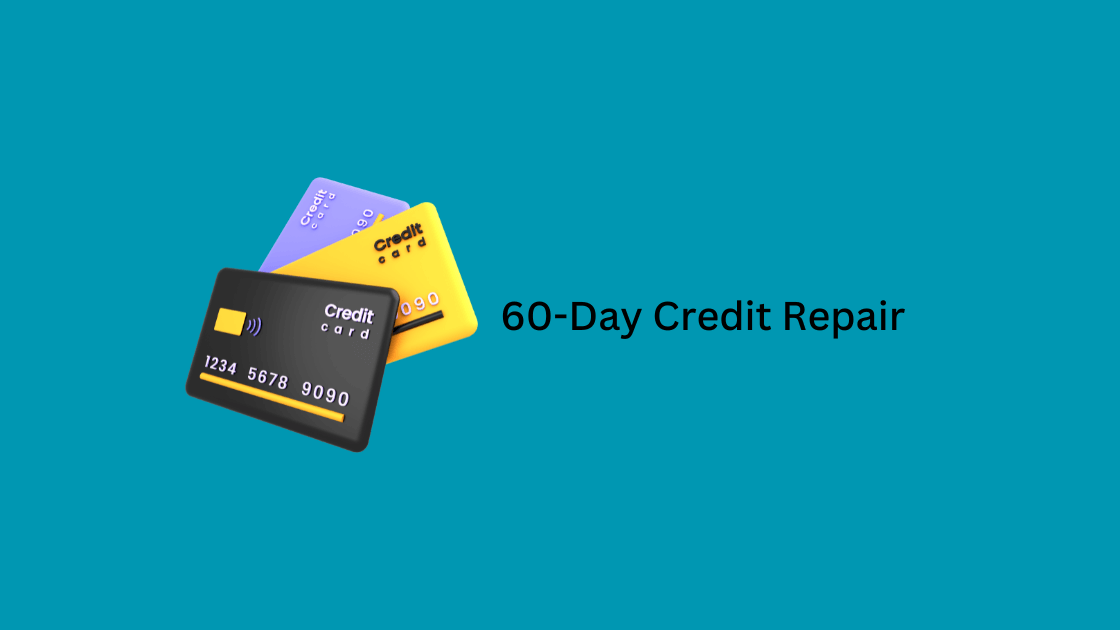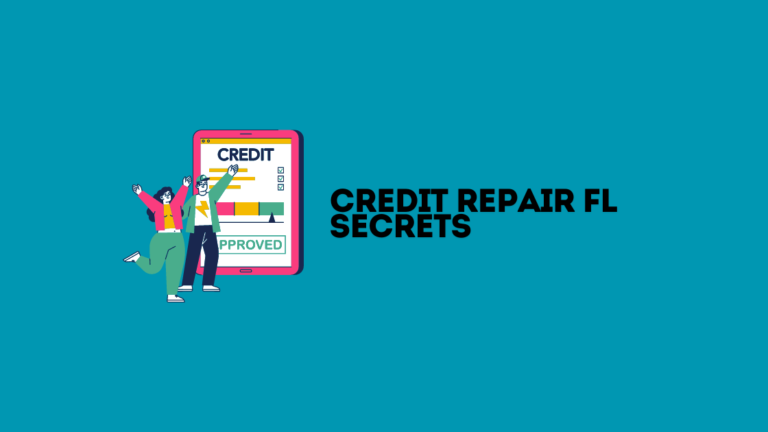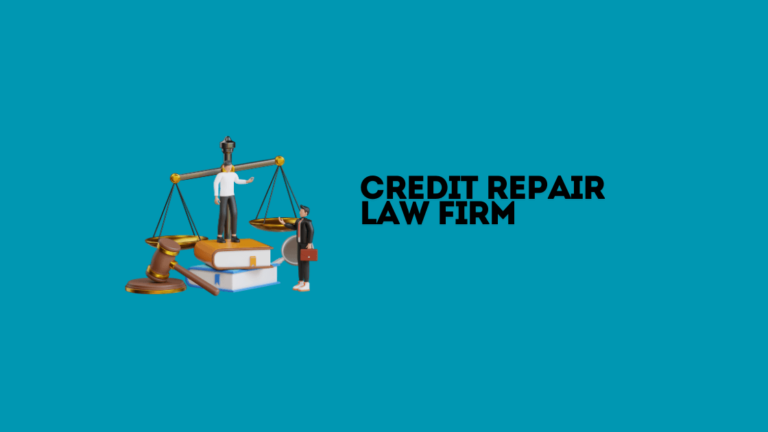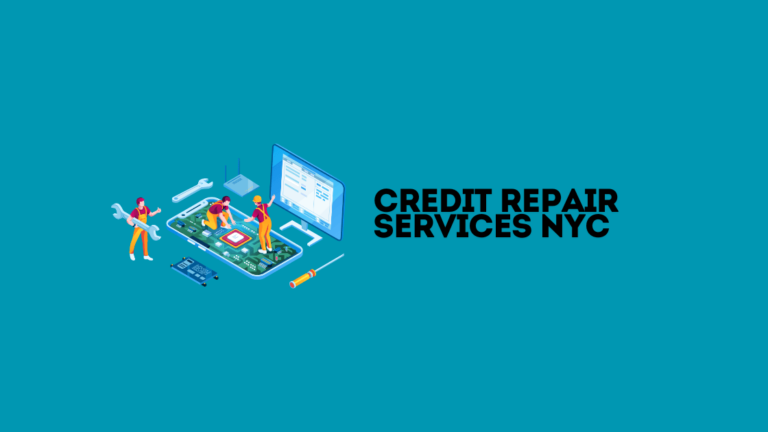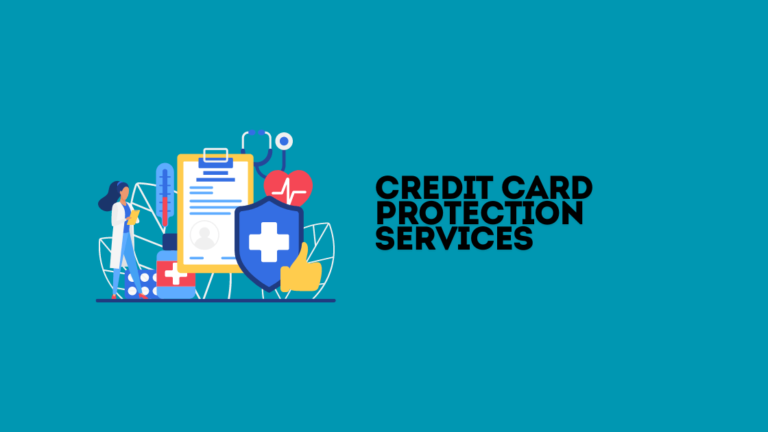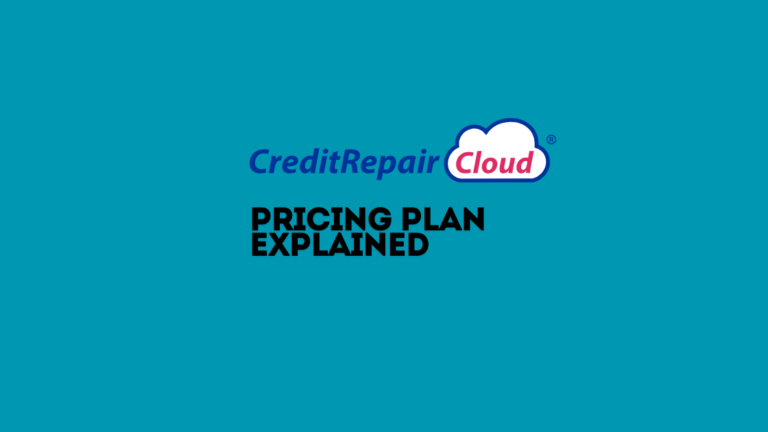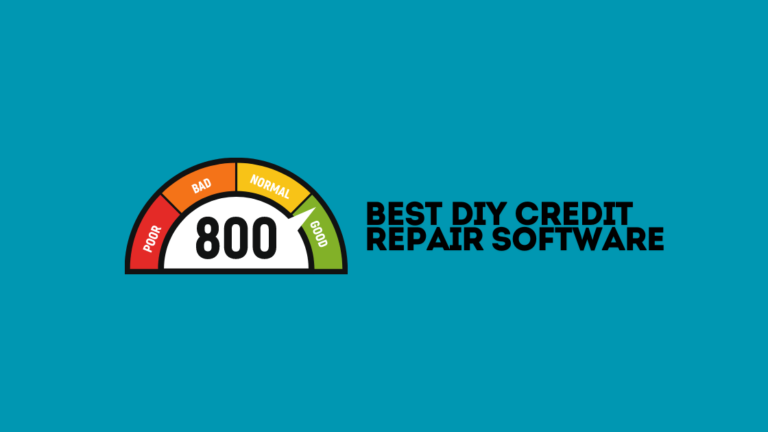60-Day Credit Repair: Transform Your Credit Score Fast!
60-Day credit repair is a service designed to improve your credit score quickly. It involves identifying and disputing errors on your credit report. You can use DIY Software like Credit Repair Cloud to obtain your goal within 60 days.
Repairing your credit in 60 days might sound ambitious, but it’s achievable with the right steps. This process involves careful analysis and timely actions to address inaccuracies on your credit report. By disputing errors, paying down debts, and managing new credit responsibly, you can see significant improvements.
Consistency and commitment are key to this strategy. Professional credit repair services can also expedite this process by leveraging their expertise.
They know the intricacies of credit laws and can negotiate with creditors on your behalf. Achieving a better credit score in just two months can open doors to better financial opportunities and lower interest rates.
Introduction To Credit Repair
Struggling with a low credit score can be frustrating. Our 60-Day Credit Repair guide is here to help. Learn the steps to boost your credit score quickly. Let’s dive into why credit scores are important and debunk common myths.
Why Credit Scores Matter
Your credit score is a critical number. It affects your ability to get loans, credit cards, and even jobs. A higher score can lead to better interest rates and loan terms. Here’s why maintaining a good credit score is essential:
- Loan Approval: Lenders check your score before approving loans.
- Interest Rates: Higher scores mean lower interest rates.
- Job Opportunities: Some employers review credit scores for hiring.
- Rental Agreements: Landlords may check scores for renting properties.
Understanding the importance of your credit score is the first step in credit repair.
Common Credit Score Myths
Many people believe myths about credit scores. Let’s clear up some of these misconceptions:
| Myth | Reality |
|---|---|
| Checking your own credit score hurts it. | Checking your own score is a soft inquiry and doesn’t hurt. |
| Closing old accounts boosts your score. | Closing accounts can lower your score by reducing credit history. |
| Paying off debt erases it from your report. | Paid debts remain on your report but appear as paid. |
| Debit cards build credit. | Debit card usage doesn’t affect your credit score. |
Now you know the truth behind these myths. You can better manage your credit score.
Assessing Your Current Credit Situation
To start repairing your credit, you need to know your current credit status. Assessing your credit situation involves two main steps: obtaining your credit report and understanding it.
Obtaining Your Credit Report
First, you need to get your credit report. You can request a free copy from each of the three major credit bureaus: Equifax, Experian, and TransUnion.
Here’s how you can obtain your report:
- Visit the website Credit Repair Cloud and get a 30-day free trial
- Fill out the required information.
- Select your preferred credit bureau.
- Download your credit report.
It’s essential to check reports from all three bureaus. Each may have different information.
Understanding Your Credit Report
Once you have your credit report, it’s time to understand it. Your credit report contains several key sections:
| Section | Description |
|---|---|
| Personal Information | Includes your name, address, and social security number. |
| Credit Accounts | Lists your credit cards, loans, and their balances. |
| Credit Inquiries | Shows who has checked your credit in the past two years. |
| Public Records | Includes bankruptcies, liens, and judgments. |
Review each section carefully. Make sure all the information is accurate. Look for errors such as incorrect balances or accounts that don’t belong to you. These mistakes can impact your credit score.
If you find any errors, you can dispute them with the credit bureau. Correcting these errors can improve your credit score quickly.
Identifying Credit Report Errors
Identifying credit report errors is a key step in your 60-day credit repair journey. Mistakes on your credit report can drag down your score. Fixing these errors can boost your credit rating quickly.
Start by getting copies of your credit reports from the three major bureaus: Experian, TransUnion, and Equifax. Review each report carefully. Look for inaccuracies that could harm your credit.
Common Credit Report Errors
Common credit report errors include incorrect personal information and outdated account details. Another frequent issue is accounts that are not yours. You might also find duplicate accounts listed.
Errors like these can unfairly lower your credit score. Here are some common mistakes to watch for:
- Misspelled names or wrong addresses
- Accounts reported as late or delinquent
- Incorrect balances or credit limits
- Duplicate accounts
- Old debts are still listed as unpaid
Disputing Inaccurate Information
Disputing inaccurate information involves a few key steps. First, gather evidence to support your claim. This could be bank statements or payment receipts.
Next, contact the credit bureau in writing. Explain the error and include copies of your evidence. Use the bureau’s dispute form if they have one.
Here’s a simple template for your dispute letter:
Dear [Credit Bureau], I am writing to dispute the following information on my credit report. The items I am disputing are [list errors]. I have attached copies of [evidence] to support my claim. I request that you correct these errors as soon as possible. Sincerely, [Your Name]
After submitting your dispute, the credit bureau will investigate. They usually respond within 30 days. If the bureau agrees, they will correct the mistakes.
Keep track of all your correspondence and evidence. This will help if you need to follow up or escalate the dispute.
Paying Down Debt Strategically
Paying down debt strategically is crucial for effective credit repair. Over 60 days, focusing on the right debts can make a significant difference. Let’s explore how to prioritize your efforts.
Prioritizing High-interest Debt
High-interest debts grow fast. Prioritizing them saves money. List all your debts with interest rates. Focus on paying more towards high-interest debts first. Minimum payments should be made on others. This strategy reduces overall interest paid. Credit cards usually have high interest rates. Pay them first to see quick improvements.
Debt Snowball Vs. Debt Avalanche
The Debt Snowball method focuses on paying the smallest debts first. This gives quick wins and boosts motivation. List your debts from smallest to largest. Pay minimum on all except the smallest. Throw extra money at the smallest debt. Repeat until all debts are gone.
The Debt Avalanche method targets the highest interest rates first. This saves more money in the long run. List your debts by interest rate. Pay minimum on all except the highest. Focus extra payments on this debt. Continue until debts are eliminated.
Here’s a comparison table:
| Debt Snowball | Debt Avalanche |
|---|---|
| Pay smallest debts first | Pay highest interest debts first |
| Boosts motivation with quick wins | Saves more money on interest |
| Good for psychological benefits | Good for financial benefits |
Choose the method that suits you best. Both approaches help in different ways. Consistency and commitment are key.
Improving Payment History
Improving your payment history is crucial for credit repair. A good payment history shows lenders you are reliable. It boosts your credit score quickly. This section will guide you on how to improve your payment history effectively.
Setting Up Payment Reminders
Setting up payment reminders ensures you never miss a due date. Missing a payment can hurt your credit score. Use your phone’s calendar to set reminders.
- Set alerts for a week before the due date.
- Set alerts for two days before the due date.
- Set alerts for the actual due date.
Email reminders are also effective. Many banks offer this service. Check your bank’s online portal to activate email alerts.
Utilizing Automatic Payments
Automatic payments take the stress out of remembering due dates. Set up auto-pay through your bank or credit card company. This ensures timely payments every month.
Follow these steps to set up automatic payments:
- Log into your online bank account.
- Navigate to the bill pay section.
- Enter the details of your bill.
- Choose the auto-pay option.
Automatic payments can cover:
- Credit card bills
- Utility bills
- Mortgage payments
Always ensure you have enough funds in your account. Overdrafts can lead to fees and missed payments.

Credit: www.60daycreditrepair.com
Managing Credit Utilization
Effective management of credit utilization is crucial for credit repair. Your credit utilization rate significantly impacts your credit score. Let’s explore some strategies to manage your credit utilization better.
Keeping Balances Low
Keeping your credit card balances low is essential. Aim to use less than 30% of your available credit limit.
- Pay off balances frequently
- Use your card for small purchases only
- Track spending and set reminders
Low balances show you can manage credit responsibly. This positively affects your credit score.
Credit Line Increases
Request a credit line increase to improve your credit utilization rate. A higher credit limit reduces your credit utilization percentage.
- Contact your credit card issuer
- Provide income and employment details
- Explain your need for a higher limit
Ensure not to increase your spending after the limit increase. This helps maintain a low credit utilization ratio.
Building Positive Credit Habits
Creating good credit habits is essential for credit repair. Positive habits help in maintaining a healthy credit score. They also ensure long-term financial stability. Here are a few essential habits to develop.
Responsible Credit Card Use
Responsible credit card use is crucial. Always pay your credit card bills on time. Late payments can harm your credit score significantly.
Keep your credit card balances low. High balances can negatively impact your credit utilization ratio. Aim to use less than 30% of your available credit.
Monitor your spending regularly. This helps avoid unnecessary debt and ensures you stay within your budget.
| Tip | Action |
|---|---|
| Pay on time | Set up automatic payments |
| Keep balances low | Pay off balances monthly |
| Monitor spending | Check statements weekly |
Mix Of Credit Types
Having a mix of credit types can enhance your credit score. This includes credit cards, installment loans, and mortgages. Lenders like to see that you can handle different types of credit responsibly.
Consider taking out a small personal loan. This can diversify your credit profile. Ensure you make timely payments on any new credit accounts.
- Credit Cards
- Installment Loans
- Mortgages
Maintaining a mix of credit types shows financial responsibility. It also helps in building a robust credit history.
Credit: www.youtube.com
Monitoring Progress And Adjusting Strategies
Monitoring progress and adjusting strategies are key to successful credit repair. Staying informed about changes in your credit report is crucial. Adapting your plan ensures you stay on the right path. This section will help you understand these vital steps.
Regular Credit Report Checks
Regularly checking your credit report helps you stay informed. You can identify errors quickly. Use free annual credit reports from major bureaus. Checking your report every month is best.
- Identify inaccuracies: Look for incorrect information.
- Track improvements: See positive changes over time.
- Spot potential fraud: Notice unusual activity early.
Use a spreadsheet to track your progress. Record changes in your credit score. Note any disputes you file.
Adapting Your Plan
Your credit repair plan should be flexible. Adjust it based on your findings. Make necessary changes to improve your score.
- Set new goals: Adjust your goals as needed.
- Reassess strategies: Drop what doesn’t work.
- Seek professional help: Consider a credit counselor.
| Action | Frequency |
|---|---|
| Check Credit Report | Monthly |
| Update Tracking Spreadsheet | Monthly |
| Adjust Credit Repair Plan | As Needed |
Follow these steps to stay on course. Regularly monitor and adapt your strategies. This ensures steady progress in your 60-day credit repair journey.
Seeking Professional Help
Repairing your credit can be challenging. Seeking professional help can make the process easier. Experts can guide you through the steps and help you avoid mistakes.
When To Consult A Credit Counselor
If you are overwhelmed by debt, consider a credit counselor. They can provide personalized advice. They may help you create a budget. They can also negotiate with creditors on your behalf.
Consult a credit counselor if you struggle with paying bills. They can help you understand your credit report. They might offer workshops and educational materials.
Choose a credit counselor who is accredited. Look for certifications from reputable organizations. This ensures they meet high standards.
Choosing A Reputable Credit Repair Service
Not all credit repair services are created equal. Find a reputable service to ensure you get quality help. Research their background. Check reviews and ratings.
Look for transparent pricing. Avoid services that charge upfront fees. Ensure they offer a money-back guarantee. This shows confidence in their service.
| Criteria | Details |
|---|---|
| Accreditation | Certified by reputable organizations |
| Transparent Pricing | No upfront fees |
| Customer Reviews | Positive ratings and testimonials |
| Money-Back Guarantee | Offers refund if results not met |
Ensure the service provides regular updates. They should communicate progress. Ask for a detailed plan. This should include timelines and expected outcomes.
Always read the contract carefully. Understand the terms before signing. This protects you from hidden fees and ensures you know what to expect.
Maintaining Your Improved Credit Score
Congratulations on improving your credit score! Now, let’s focus on keeping it high. Consistent and smart habits will help you maintain your improved credit score. Below are some tips and strategies to ensure your credit stays strong.
Long-term Credit Habits
Developing good credit habits is key. Follow these practices to keep your credit healthy:
- Pay bills on time: Always pay your bills before the due date.
- Keep credit card balances low: Try to use less than 30% of your credit limit.
- Regularly check your credit report: Monitor your report for any errors or fraudulent activities.
- Limit new credit applications: Only apply for new credit when necessary.
Avoiding Common Pitfalls
Even with a good score, certain mistakes can cause setbacks. Avoid these common pitfalls to maintain your score:
- Missing payments: Late payments can significantly hurt your score.
- Maxing out credit cards: High credit usage can lower your score.
- Closing old accounts: Length of credit history matters. Keep old accounts open.
- Ignoring credit utilization: Keep an eye on how much credit you are using.
Can Doing a Credit Sweep Help Improve My Credit Score Quickly?
If you’re looking to improve your credit score quickly, then consider trying a quick credit sweep steps. By following these steps, you may be able to remove any inaccurate or outdated information from your credit report, which can potentially help improve your credit score in a short amount of time.
What Instant Credit Repair Strategies Can Enhance a 60-Day Credit Repair Plan?
To improve credit score fast within a 60-day credit repair plan, focus on paying down high credit card balances, disputing inaccuracies on credit reports, and negotiating with creditors for better terms. Additionally, making timely payments and becoming an authorized user on a well-managed account can quickly boost creditworthiness.
Frequently Asked Questions
1. How Much Does 60-Day Credit Repair Cost?
The cost of a 60-day credit repair varies, typically ranging from $50 to $500. Prices depend on service providers and specific needs. Research and compare options to find the best fit for you.
2. How Can I Fix My Credit In 60 Days?
Pay off outstanding debts. Dispute any errors on your credit report. Make timely payments. Reduce credit card balances. Avoid new credit inquiries.
3. How Fast Can A Credit Repair Company Fix Your Credit?
Credit repair companies can take 3 to 6 months to show significant improvements. Results vary based on individual credit situations.
4. How Long Does It Take To Fix A Bad Credit Score?
Fixing a bad credit score typically takes 3 to 6 months of consistent efforts. Paying bills on time, reducing debt, and not opening new credit accounts can help improve your score.
5. What Is A 60-day Credit Repair?
A 60-day credit repair aims to improve your credit score within two months.
Conclusion
Taking charge of your credit in 60 days is achievable. Follow these steps, stay committed, and watch your score rise. Consistent effort and smart financial decisions are key. Start your credit repair journey today and enjoy the benefits of a healthier financial future.
Remember, better credit opens doors to many opportunities.

